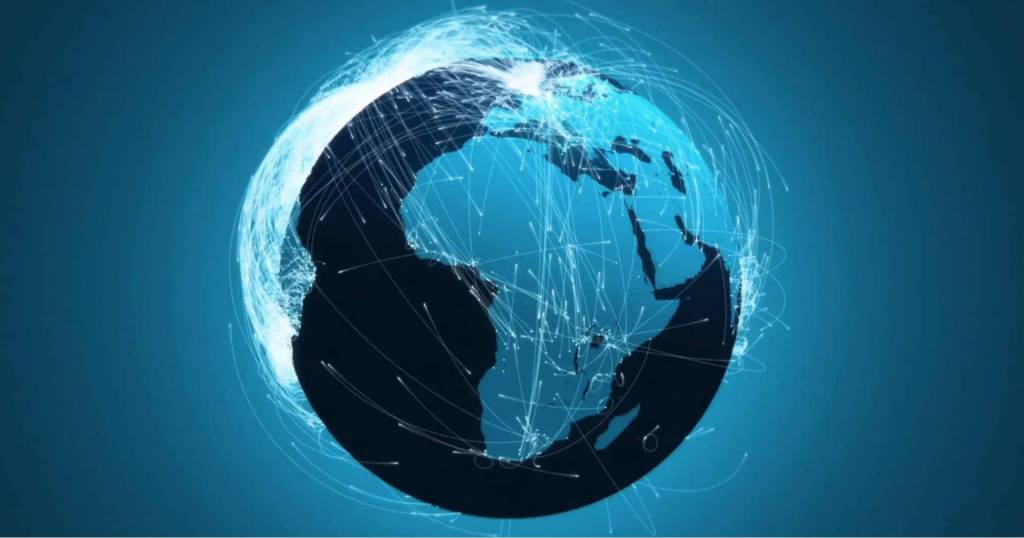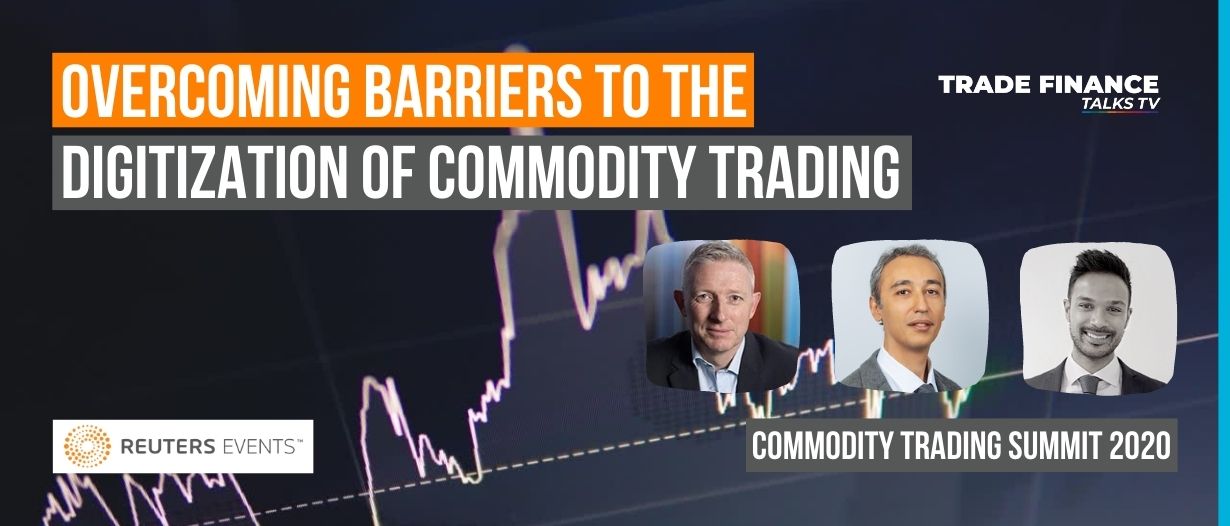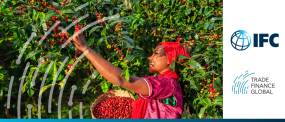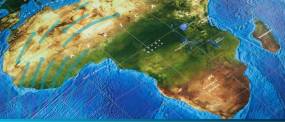Host: Deepesh Patel, Editor, Trade Finance, Trade Finance Global
Featuring:
Simon Collins, CEO & Co Founder, TradeCloud
Movsum Muslumzada, Global Head of IT, SOCAR Trading
2020 has certainly been difficult for the commodity market, arguably one of the toughest years we have seen in decades. 2019 ended with volatile commodity markets and geopolitical uncertainty, but this was totally dwarfed by the impact of the collapse of many commodity traders, notably Agritrade International and Hin Leong, followed by the collapse of Phoenix Commodities in Dubai.
Further to this, we saw the dramatic collapse in the price of crude oil, and also increased volatility in commodity prices overall. In addition, commodity flows and prices continue to be impacted by the US-China trade war, sanctions, and the imposition of many tit-for-tat tariffs.
But geopolitical and macroeconomic issues aside, the commodity trading operating model is going through a digital makeover. Commodity trading houses operate very much in a paper-based, siloed and disconnected fashion, despite pressures on thinner margins and the fight for maximising profitability.
Coupled with this, an increasing cost of bank debt, probably as a result of the devastating coronavirus pandemic, has for sure made this ‘the perfect storm’ for commodity trading houses and commodity financiers.
There is a silver lining. A recent research publication co-authored by Trade Finance Global, and Emmanuelle Ganne at the World Trade Organization, announced a significant acceleration and maturity of digital ecosystems, platforms, projects and consortia using digital technologies to accelerate various areas of trade, including commodity finance. This is a material improvement in just 12 months, when we first launched the barometer in Geneva, back in November 2019. Today we’ll be discussing why there isn’t (yet) an AirBnb or Amazon for commodity trading, and what it might take for this industry to get there.
This video covers the following:
Introductions
- What is TradeCloud?
- What is SOCAR Trading?
Framing the problem
- What are the biggest challenges for commodity traders, and the commodity trading industry as a whole?
- From an IT operations and infrastructure perspective, what are the current processes a trader faces when it comes to booking and selling orders, generating proposals and contracts or perhaps securely sharing data and documents?
Bringing Commodity Finance Online
- What are the benefits of digitalizing commodity trading?
- What needs to happen from a practical IT / operational perspective?
- Is blockchain a solution?
- Are there other ways to make this work and connect the dots? E.g. APIs?

Regulatory and Compliance Challenges
- What does the landscape look like from a regulatory and compliance perspective (e.g. Basel IV reform, LIBOR, SFTR) – does this add to the problem, or do digitalizing various processes help?
- How big is the education / awareness challenge, and what can we do to address this gap in commodity trading and trade finance?
- What are the biggest issues around data – data capture, data storage and data sharing?

Opportunities / moving forward
- Interoperability is a problem – how do we resolve this, should public bodies and intergovernmental organisations step in and what’s the best route forward?
- The COVID-19 pandemic has certainly accelerated adoption of digitizing processes within commodity markets. What have you seen from your perspective?
- What’s next for truly digitized commodity trading and commodity trade finance?

 Australia
Australia Hong Kong
Hong Kong Japan
Japan Singapore
Singapore United Arab Emirates
United Arab Emirates United States
United States France
France Germany
Germany Ireland
Ireland Netherlands
Netherlands United Kingdom
United Kingdom














Comments are closed.